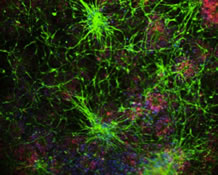Columbia University
Irving Medical Center
Neurological Institute
710 West 168th Street, 3rd floor
(212) 305-1818
About Us
Taub Faculty
Yaakov Stern, PhD, is a Professor of Clinical Neuropsychology in the Departments of Neurology, Psychiatry, and Psychology at Columbia University College of Physicians and Surgeons. Dr. Stern is the director of the Division of Cognitive Neuroscience in the Department of Neurology. In addition, Dr. Stern is an associate director of the Alzheimer's Disease Research Center, and directs a post-doctoral training program in Neuropsychology and Cognition in Aging.
Cognitive Reserve
I am interested in understanding why some individuals show more cognitive deficit than others given the same degree of brain pathology. My own research, and that of others in the field, has shown that aspects of life experience, such as educational or occupational attainment, can impart reserve against brain pathology, allowing some people to maintain function longer than others. Ongoing imaging studies are designed to explore how this "cognitive reserve" is implemented in the brain.
Cognitive Intervention in Normal Aging
In parallel studies, we are exploring potential non-pharmacologic interventions that might improve cognition or cognitive/functional outcomes in normal aging. These include aerobic exercise and experimental videogames.
Heterogeneity of Alzheimer's disease
I am conducting a study designed to explore individual differences in the rate of decline and in the manifestation of cognitive, behavioral, psychiatric, and neurologic features in patients with Alzheimer's disease. One aim of the study is to produce algorithms for the prediction of important disease endpoints in individual patients.


